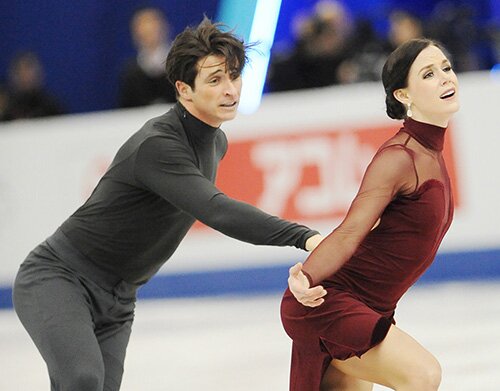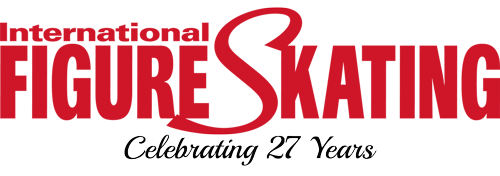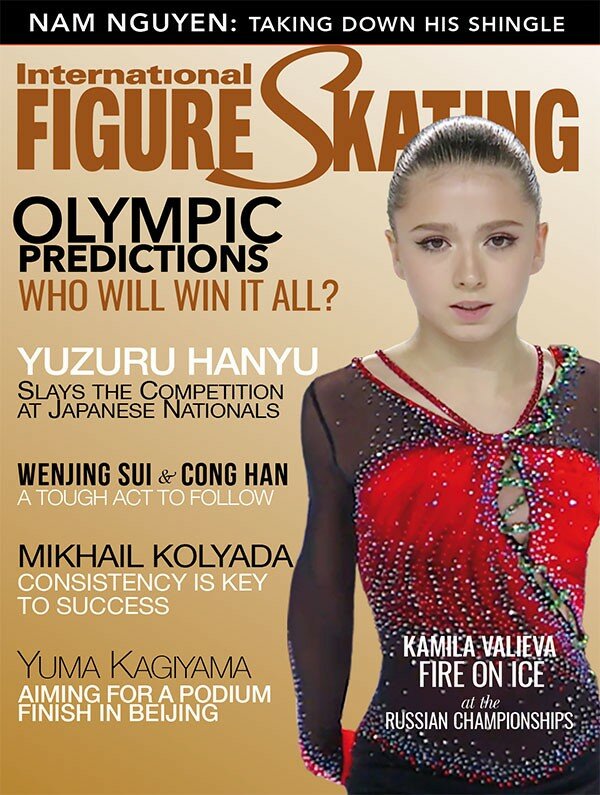
Amidst the madness and high-pressure stakes of the Olympic Winter Games that are now just weeks away, a number of Canadian skaters have returned to familiar pieces of music and programs that were successful for them in the past.
The most dramatic — and recent — move was made by Meagan Duhamel and Eric Radford, the six-time Canadian pair champions, who decided to drop the “Muse” free program they had used throughout the Grand Prix Series. This will be their third long program this season.
Just three weeks ago they decided to revive “Hometown Glory” by Adele, the long program they used to win their second World title two years ago in Boston. “When I listen to this music and I think about the soothing quality of this program, I feel how I want to feel at the Olympics,” said Duhamel, who was inspired to make the change after watching Ekaterina Gordeeva skate to the music at a show in China in late December. “’Muse’ was a good vehicle for us that I think we could do well with, but the best we could do with that program is an Olympic bronze medal. I feel like we could have a chance to be better than a bronze with ‘Hometown Glory.’ So why not take the chance?”
The return to something familiar brings one thought to mind for Radford. “I feel like the theme this season for all the skaters is a return to comfort,” he said. “You see a lot of skaters this season going back to old programs and I think with a competition as important as the Olympics, you want to feel as comfortable as possible. You want to feel as if you’re giving yourself the best chance to have the best skate. So, this is what we — and a lot of other people — are doing.”
Indeed, they are not alone. Ice dancers Kaitlyn Weaver and Andrew Poje chose to resurrect “Je Suis Malade,” a free dance they last competed in the 2011-2012 season. It was something they felt was necessary heading into the Olympic pressure cooker. “The skating level is so high right now and I think everyone just kind of realized that in order to bring the performance that they want to bring come Games time…you want to be comfortable and showing the best version of yourself,” said Poje. “When we think back to how we felt with “Malade,” it just feels right for us. It just feels like us.
“Other programs have felt great and we’ve felt strong in them, but it was always that little bit of extra comfort when it came to that program. I’m sure other people who have gone back to old programs feel the same way. It gives you that extra little bit of confidence and that fierceness to go out there and lay it down.”
It was with the Olympics in mind that Gabrielle Daleman, the reigning Canadian silver medalist, decided after her two Grand Prix events to return to the “Rhapsody in Blue” long program that helped her claim the bronze medal at Worlds in Helsinki last season.
“It didn’t feel like my Olympic program, it didn’t feel like me,” Daleman said of the ‘Gladiator Rhapsody’ program she originally competed this season. “I love ‘Rhapsody in Blue’ — with the storyline me and Lori (Nichol, her choreographer) created, it’s a more fun free program. The tempo keeps changing, which is great. We made a few changes here and there with Lori, but not major ones. But I’m very happy with the change. I love this program dearly.”
Seven-time Canadian ice dance champions Tessa Virtue and Scott Moir decided to make a number of changes to their current free dance after the Grand Prix Final, where they finished second to the French team of Gabriella Papadakis and Guillaume Cizeron. Virtue and Moir agreed the Olympic season is often a catalyst for the kind of strategizing that does not occur at any other time.
“There is so much pressure on us right now and it’s a heavy weight. It’s the time when you overanalyze and overthink about every single moment of your day,” said Virtue. “Is (eating) this stick of gum contributing to my winning the Olympics? Is this extra five feet in distance walking to my car making a difference in my training? It’s so easy to get wrapped up in that now a month out from the Games.
“On the ice, it’s no different. I would imagine most skaters would be like us. You just want to feel like you’ve done everything you possibly can to set yourself up. If that’s going back to a program that feels comfortable, if that’s changing an element here or there … it’s the time to do it.”
Then there are ice dancers Piper Gilles and Paul Poirier, who disdained calls to go back to something familiar when they made a free dance change after the Grand Prix season. It is just not in the nature of this team, who will debut a James Bond-themed free dance here in Vancouver in their bid to make the Olympic team.
“We didn’t want to go backwards,” said Gilles, who hopes to represent Canada at an Olympics for the first time next month. (Poirier previously went to the Winter Games in 2010 with Vanessa Crone). “We had people saying, ‘Maybe they should go back to the Tango.’ But we’re all about moving forward and creating new work, so for us, having the ability to do a new program in such a short amount of time … we’re very proud of the work we’ve done to get here and ready to show ‘this is who we are.’ We’re all about the now.”
No doubt, the Canadian skaters will not be the only ones rethinking their strategy at this point.
RELATED CONTENT:
2018 SKATING CHAMPIONS CROWNED
CANADIANS BATTLE FOR OLYMPIC BERTHS
SKATE CANADA WELCOMES GLOBAL AUDIENCE
2018 CANADIAN CHAMPIONSHIPS




